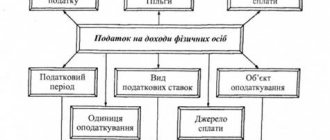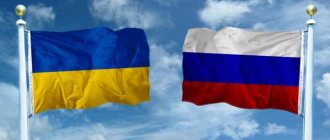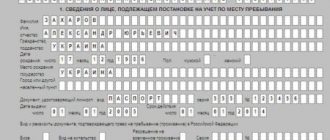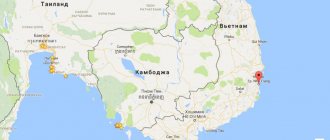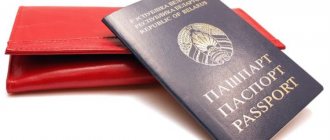Which countries are the borders of the Russian Federation open with in 2021?
In accordance with the Order of the Government of the Russian Federation No. 635-r, communication between the Russian Federation and the following countries has now been resumed:
- Great Britain
- Tanzania
- Türkiye
- Switzerland
- Egypt
- Maldives
- United Arab Emirates
- Kazakhstan
- Kyrgyzstan
- The Republic of Korea
- Cuba
- Serbia
- Japan
- Seychelles
- Ethiopia
- Vietnam
- India
- Qatar
- Finland
- Azerbaijan
- Armenia
Thus, foreign citizens who are citizens of these countries or who have a residence permit in these countries have the right to enter the territory of the Russian Federation. It is necessary to enter the Russian Federation from the country of which the foreigner is a citizen or in which he has a residence permit.
Why might a ban be imposed on citizens of Tajikistan from entering the Russian Federation?
As practice shows, border guards cannot know why a ban on entry into the territory of the Russian Federation may be imposed. After all, their main task is to check your documents and clarify whether you are on the so-called “black list” or not. It is worth noting that information ends up on this list for quite a long time - many manage to leave and return to Russian territory several times. But this does not mean that all this can continue indefinitely - sooner or later the information will be updated, and the next such trip may not take place.
Now let’s talk specifically about the reasons why a citizen of Tajikistan may not be allowed into the territory of the Russian Federation. According to the current migration legislation of the Russian Federation, the border may be closed:
- Violation of border crossing rules
- Forgery of documents
- Having an outstanding criminal record
- Having more than two administrative offenses in the last three years
Borders with the countries of the Eurasian Economic Union (EAEU) are open
From 02/01/2021 to 03/01/2021, the Russian Federation temporarily opens its borders to countries that are members of the Eurasian Economic Union.
In other words, from February 1, 2021 to March 1, 2021, the borders with Kazakhstan, Kyrgyzstan and Armenia will be opened and the list of points for entry into the Russian Federation will be expanded, that is, it will be possible to arrive in Russia from these countries through the following checkpoints:
- Anapa (Vityazevo Airport)
- Vladivostok (Knevichi Airport)
- Grozny, Chechen Republic (Airport "Severny")
- Ekaterinburg (Koltsovo Airport)
- Moscow (Zhukovsky Airport)
- Kazan, Republic of Tatarstan
- Kaliningrad (Khrabrovo Airport)
- Krasnodar (Pashkovsky Airport)
- Krasnoyarsk (Emelyanovo Airport)
- Moscow (Vnukovo Airport)
- Moscow (Domodedovo)
- Moscow (Sheremetyevo Airport)
- Nizhnekamsk (Begishevo Airport)
- Novosibirsk (Tolmachevo Airport)
- Rostov-on-Don (Platov Airport)
- Samara (Kurumoch Airport)
- St. Petersburg (Pulkovo Airport)
- Sochi
- Ufa
- Chkalovsky, Moscow region
Important!
To cross the border, it is necessary for a foreign citizen to have the “Travel without COVID-19” application installed. The application must include a COVID-19 test result (negative).
The “Travel without COVID-19” application must be used only by citizens of the EAEU countries who enter the Russian Federation between February 1 and March 1, 2021.
The border is locked: the government restricts entry into Russia for foreigners
The restriction will be in effect from March 18 to May 1. Photo TASS/Elena Nagornykh
Prime Minister Mikhail Mishustin decided to restrict the entry of foreigners and stateless persons into Russia due to the threat of the spread of coronavirus. According to a government statement, the restriction will be in effect from March 18 to May 1.
However, some exceptions will still be made. Restrictions on entry into Russia will not apply to:
- truck drivers,
— crews of aircraft and sea vessels,
- train crews,
- members of official delegations,
- persons who have diplomatic, official, ordinary private visas issued in connection with the death of a close relative,
— persons permanently residing in Russia,
— persons transiting through air checkpoints.
Before announcing his decision, Mikhail Mishustin held telephone conversations with the prime ministers of Belarus, Azerbaijan, Armenia, Kazakhstan, Kyrgyzstan, Tajikistan and Uzbekistan and informed them about the upcoming measures. Mishustin explained that the restrictions introduced by Russia comply with the recommendations of the World Health Organization (WHO) and are temporary, the press service of the Cabinet of Ministers clarified. The heads of government agreed to maintain contacts on issues related to the threat of further spread of coronavirus.
Checking the ban on entry into the Russian Federation
To confidently cross the border, it is better to know in advance whether the MFS of Russia will let you through or not. There are two ways to check:
- official request to the MFS of Russia. It is necessary to write an application to provide the information of interest. The service is obliged to inform you within 10 days about the current situation of a particular foreign citizen;
- online request on the official website of MFS Russia. The request specifies personal data that will be checked in the MFS database.
It is also possible to lift the ban on entry into Russia. To do this, you should contact specialists for advice. Lifting a ban is a labor-intensive procedure that cannot be done without the help of experienced lawyers. There are two ways to lift the entry taboo:
- if the ban was applied by mistake or on the basis of incorrect information about a foreign citizen;
- the entry ban is being challenged in court on the grounds provided for in the legislation of the Russian Federation.
If you have any problems, seek advice from experienced specialists.
What is important to know about this
A ban on entry into the Russian Federation is a state sanction aimed only at foreign citizens who have violated current Russian legislation. The ban may expire:
- immediately if the accusation has been proven unfounded;
- after a few months for minor offenses.
The ban can be lifelong for the most serious violations of Russian legislation.
It is worth noting that an entry ban can have a variety of reasons:
- transfer of a foreign citizen to another state if he is wanted and there is an international agreement on the transfer on both sides;
- committing illegal actions on the territory of the Russian Federation;
- outstanding criminal record;
- unpaid taxes, fines or if the foreign citizen has debts;
- if the foreigner has previously been deported;
- crossing the Russian border using false documents.
It is necessary to understand the difference between a refusal and a ban on entry into the Russian Federation. Refusal to enter in most cases occurs due to incorrect paperwork or violation of the migration regime.
Removal of restrictions on entry into the Russian Federation
- There are several ways in which you can check restrictions on entry into the Russian Federation, one of them is the migration service website, where you need to go to a special service, indicate basic information (you must enter your name, citizenship, etc. in the fields). The system will check the ban on entry into the Russian Federation and provide information. But this is just reference information; you can get 100% reliable data by contacting the FMS in person, or by contacting your official representative.
- Once the entry restrictions have been verified, the issue of lifting sanctions can be addressed. How realistic is this? It depends on the situation, but the restriction can only be lifted through the court, or by filing a complaint with the migration department.
ATTENTION: watch a video with advice from our lawyer on how to lift the Russian Federation entry ban on our YouTube channel, and also write your comments on the video with questions about obtaining citizenship and solving other migration problems:
Reasons for the ban on foreign citizens entering the Russian Federation
There is a fairly extensive list of grounds for the ban, enshrined in Federal legislation and regulations. There are various reasons.
For more information on the Federal Law of August 15, 1996 N 114-FZ (as amended on July 29, 2017) “On the procedure for leaving the Russian Federation and entering the Russian Federation,” you can read and download Federal Law 114 at this link.
In what cases, when crossing the border, is a note about a ban on entry into the Russian Federation made:
- Violation by a foreign citizen of the legally established periods of stay in the Russian Federation and untimely, beyond the permitted dates, departure from our country.
- Delay in Russia for a period of 1 to 90 days is a ban on visiting the country for 3 years.
- Delay in the Russian Federation for a period of up to 180 days - a ban on entry for 5 years, up to 270 days - 10 years.
It is clear from the provisions of the law that the main reason for the ban on entry into the territory of the Russian Federation is a violation of the rules of stay during a previous visit by a foreigner to the country.
For labor migrants, there are additional reasons for temporary refusal to further visit Russia, among which the primary and most common is violation of the tax legislation of the Russian Federation:
- late payment for a patent or payment of tax using incorrect details, which means automatic cancellation of the patent. An invalid work patent is a one-time loss of both the right to work and the right to stay in the country for more than 90 days, and from the first day of suspension of the patent, the foreigner is considered an illegal immigrant. Staying in the country with an invalid (expired) patent is a common reason for a ban on entry into the Russian Federation.
- A foreign citizen who has provided false information about himself or the purpose of his trip to the Russian Federation is subsequently entered into the FMS (Federal Migration Service) database with a note indicating an entry ban.
- Violation of customs and sanitary rules upon entry/exit will result in refusal to cross the border and a ban on entry into the territory of the Russian Federation until all offenses are eliminated.
- If a foreigner (or a stateless person) was repeatedly (at least 2 times) brought to administrative responsibility during his previous stay in Russia in the previous 3 years, incl. for minor offenses, including smoking or drinking alcoholic beverages in public places, traffic violations and more serious ones - late registration of temporary registration. Such a citizen will most likely be denied re-entry.
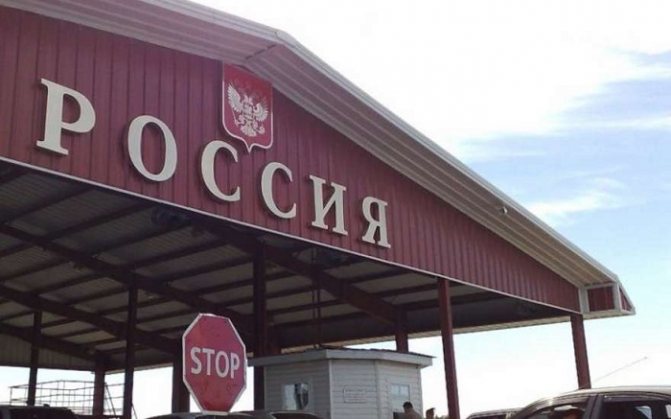
Guided by the norms of Federal Law 114 and regulations when crossing the border, a customs officer will mark a foreign citizen with a ban on entry for 3 or more years, if:
- If the readmission procedure was previously terminated in relation to a foreigner (recognized as an illegal immigrant), then the entry ban is established for a period of 3 years. If there is a valid decision on deportation, expulsion or transfer to a foreign state on the basis of a readmission agreement, then the entry ban is valid for 5 years. Repeated expulsion will be grounds for prohibiting entry into the country for 10 years.
- Having a criminal record for a premeditated crime, regardless of where it was committed, in Russia or abroad.
- Insufficient documents for issuing a visa or lack of sufficient money for accommodation are grounds for refusal of entry.
- The use of previously false documents and the existing decision on the undesirability of his entry into the Russian Federation is a reason not to allow the person to enter the territory of our country. Example: an early attempt to enter the Russian Federation using a false passport after deportation.
- Unpaid debts of a foreigner for fines, taxes, evasion of payment of deportation costs during a previous stay in Russia.
- Staying on the territory of the Russian Federation for more than 90 days within 6 months, then on this basis the ban on entry into Russia will be 3 years.



